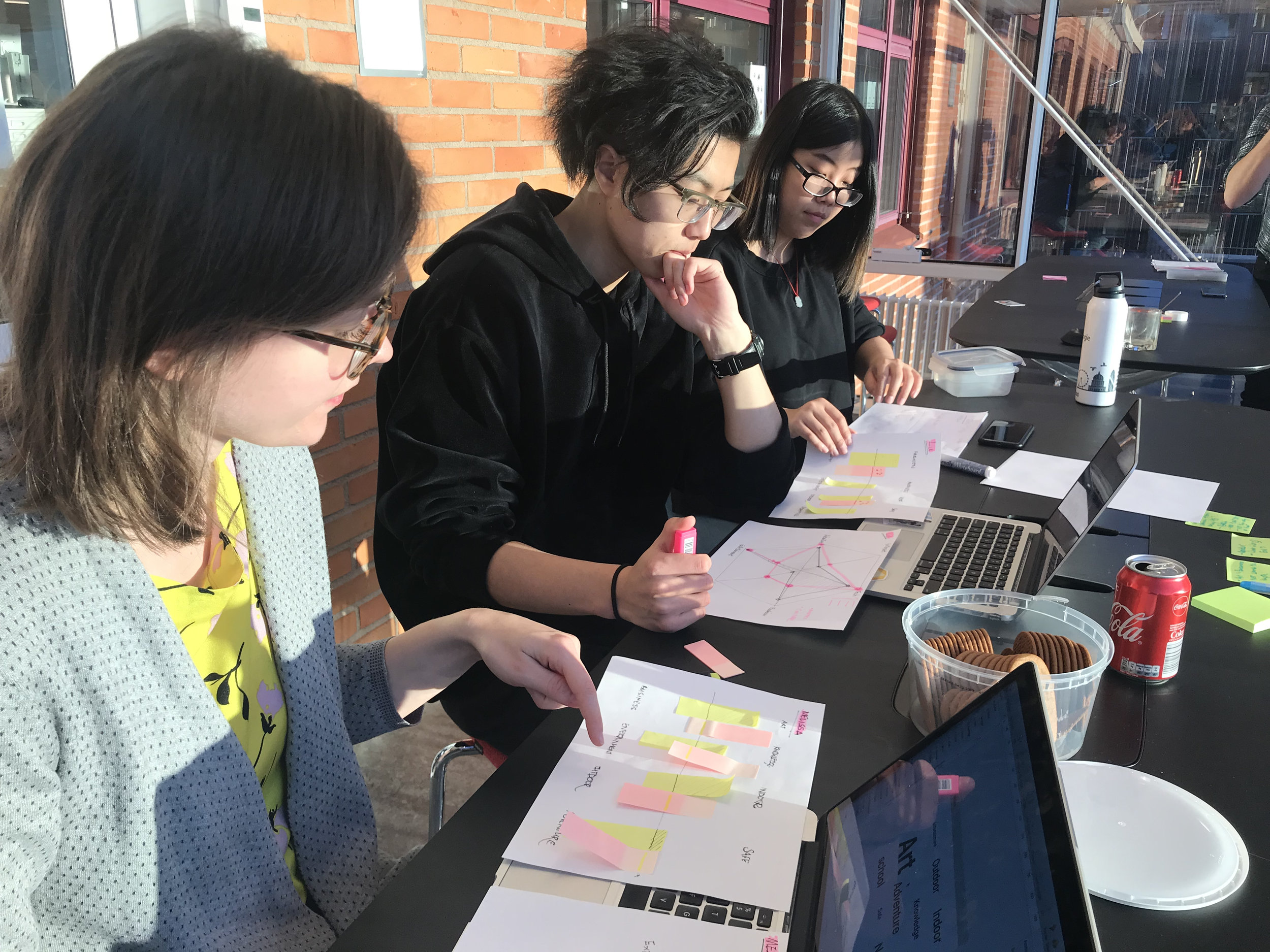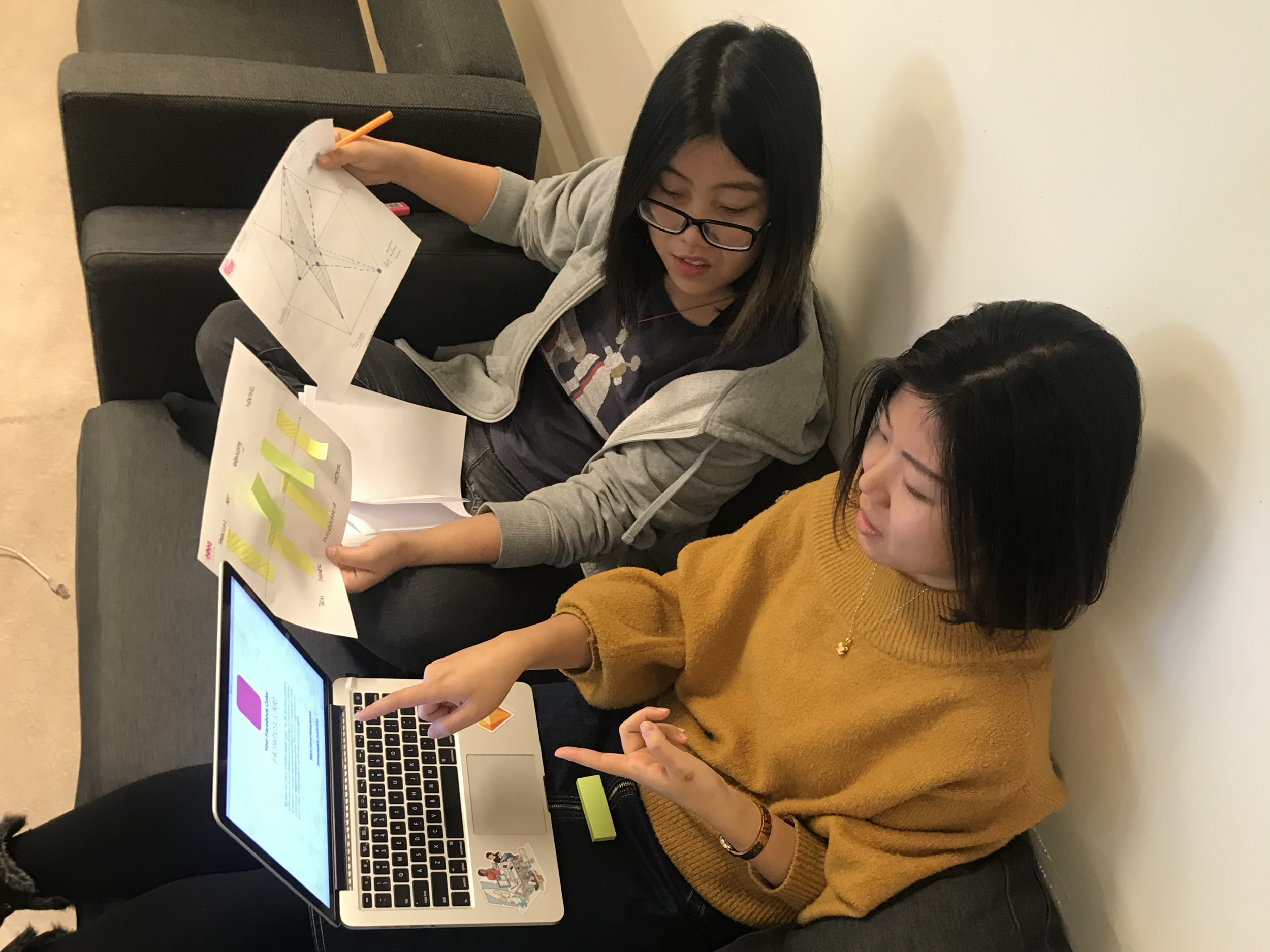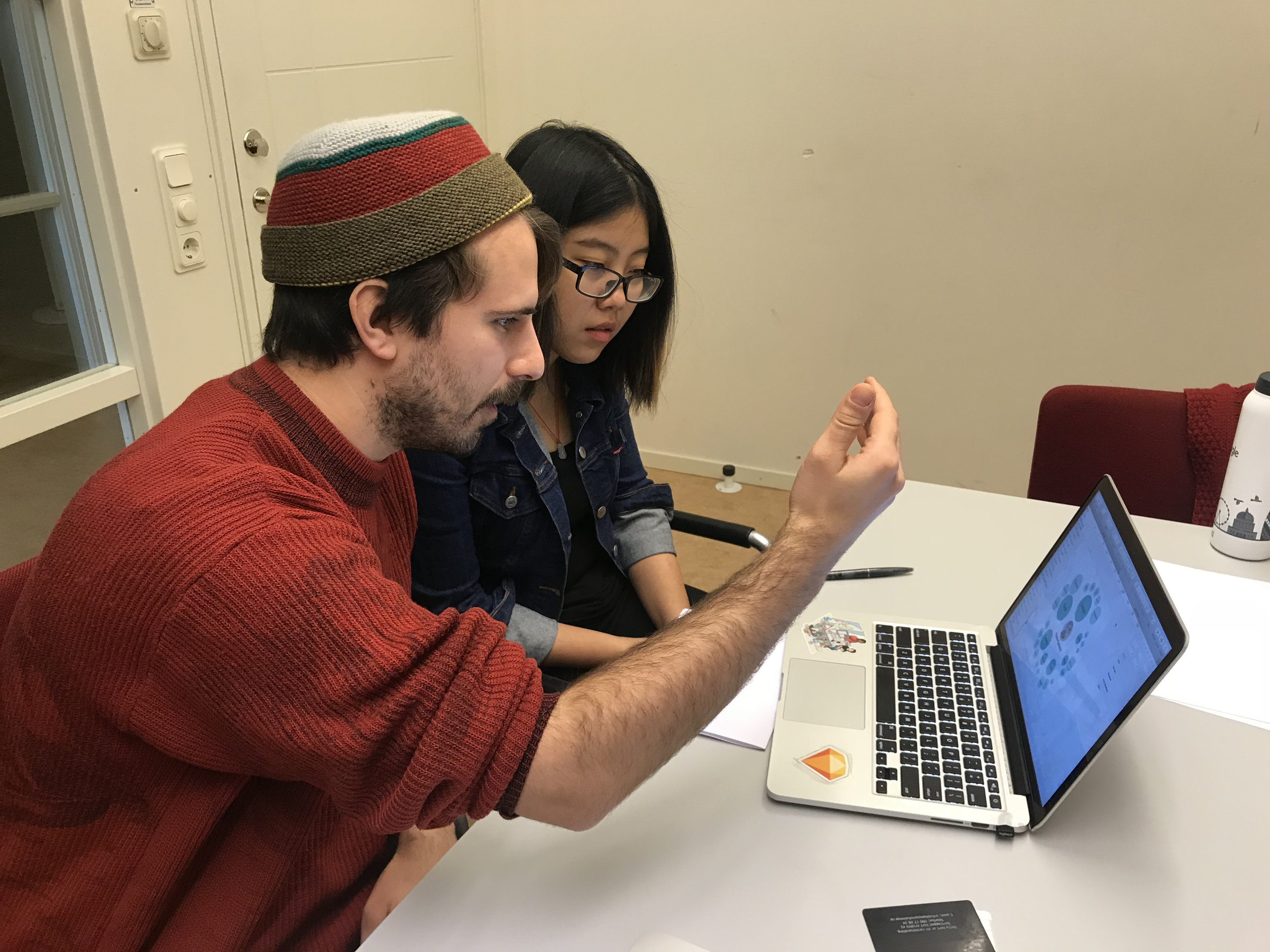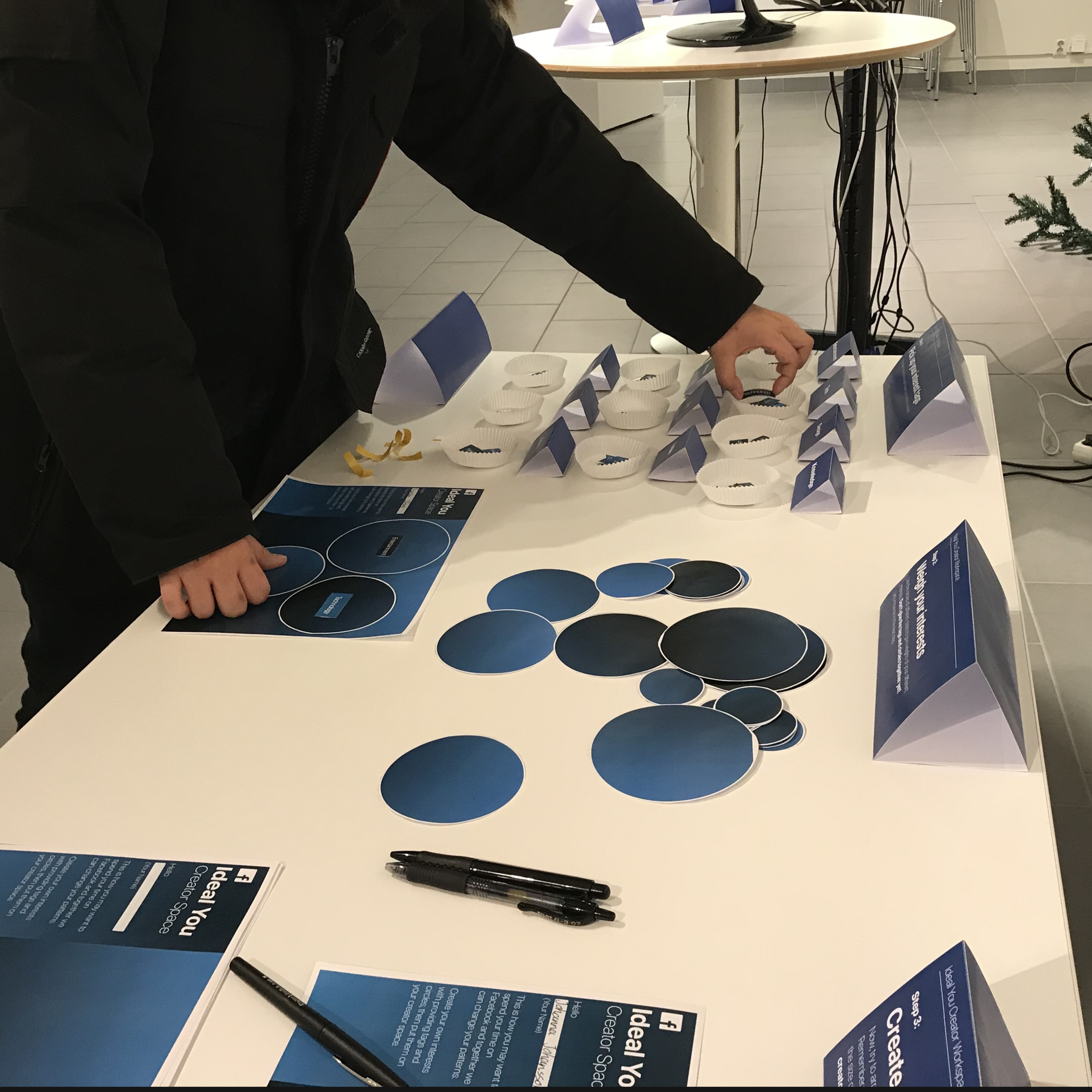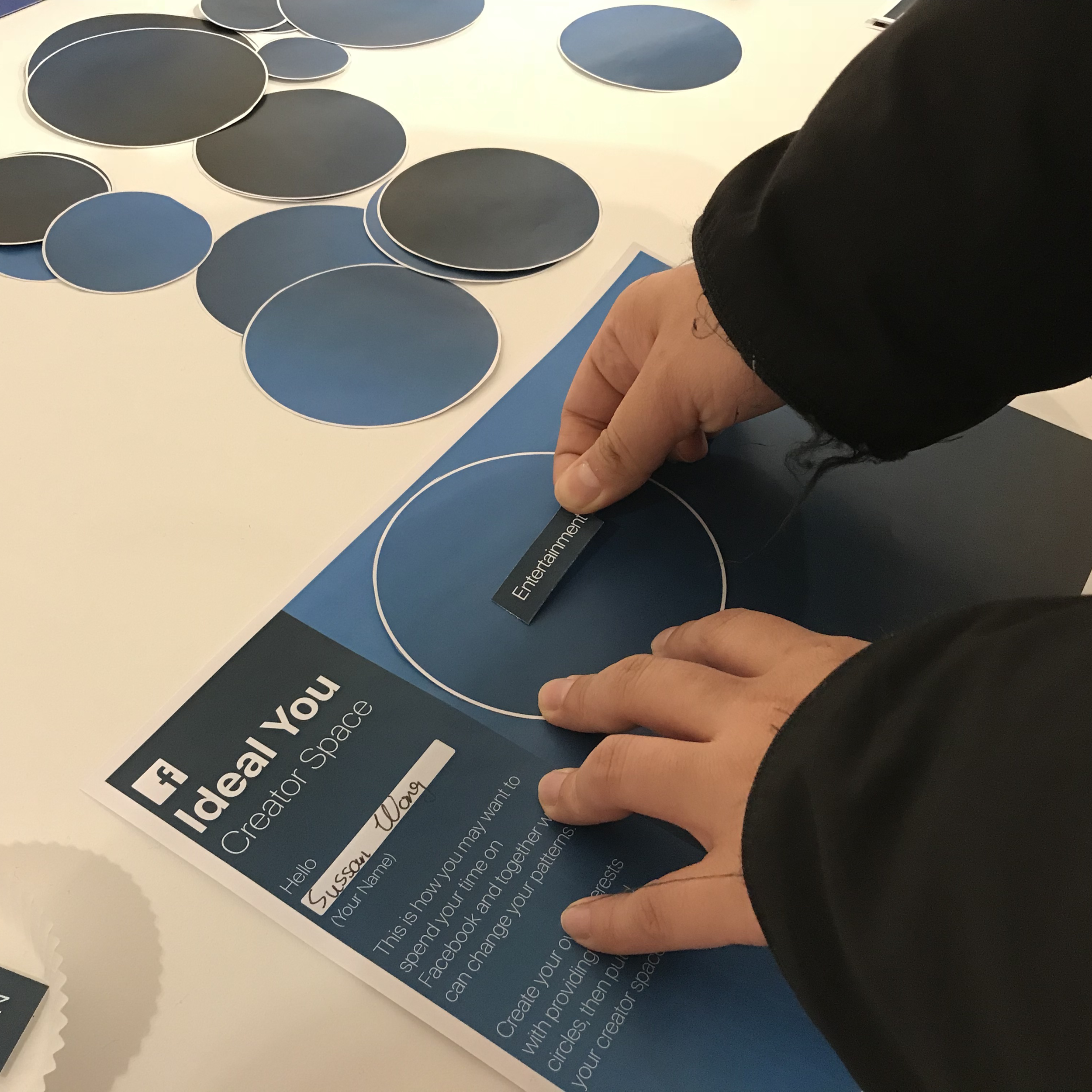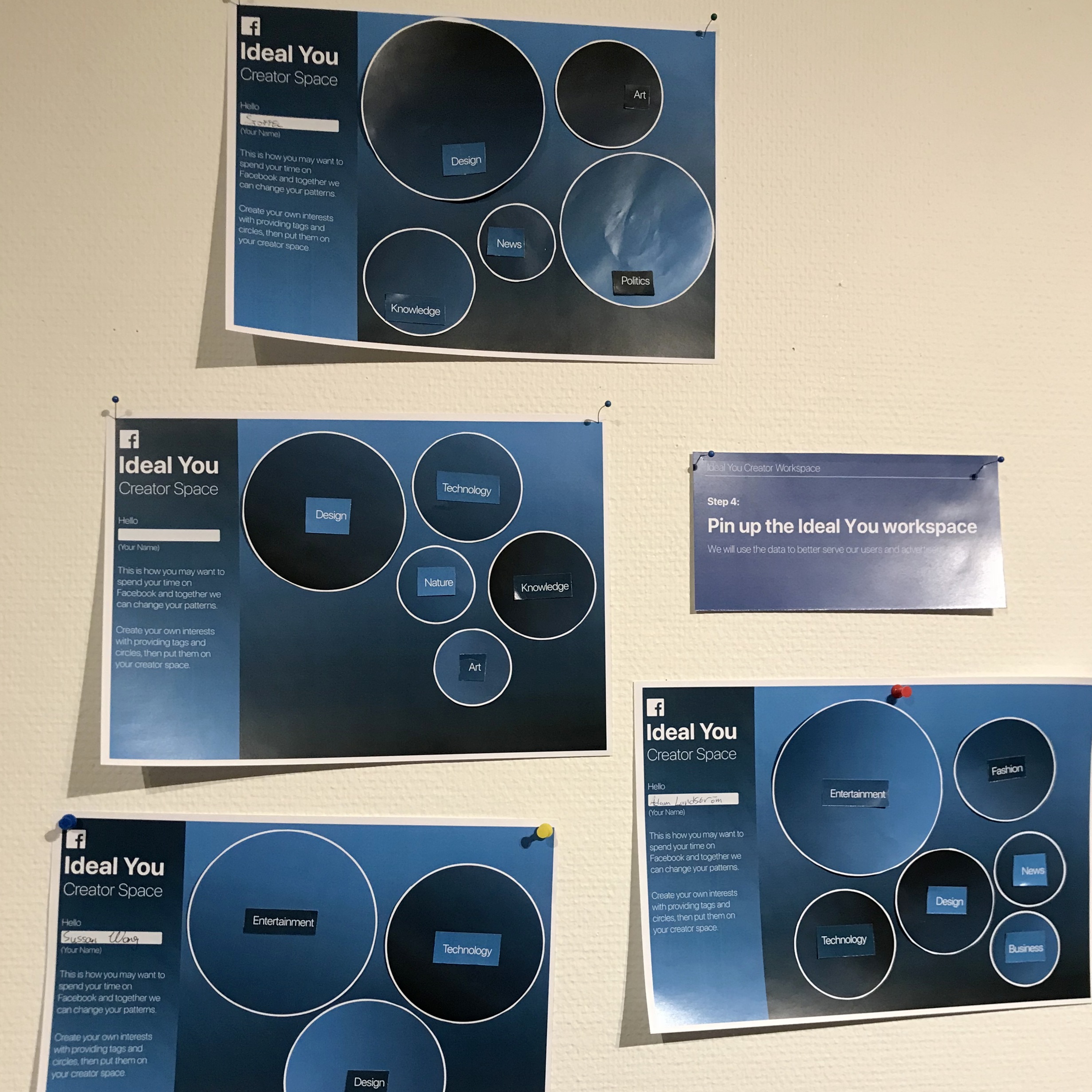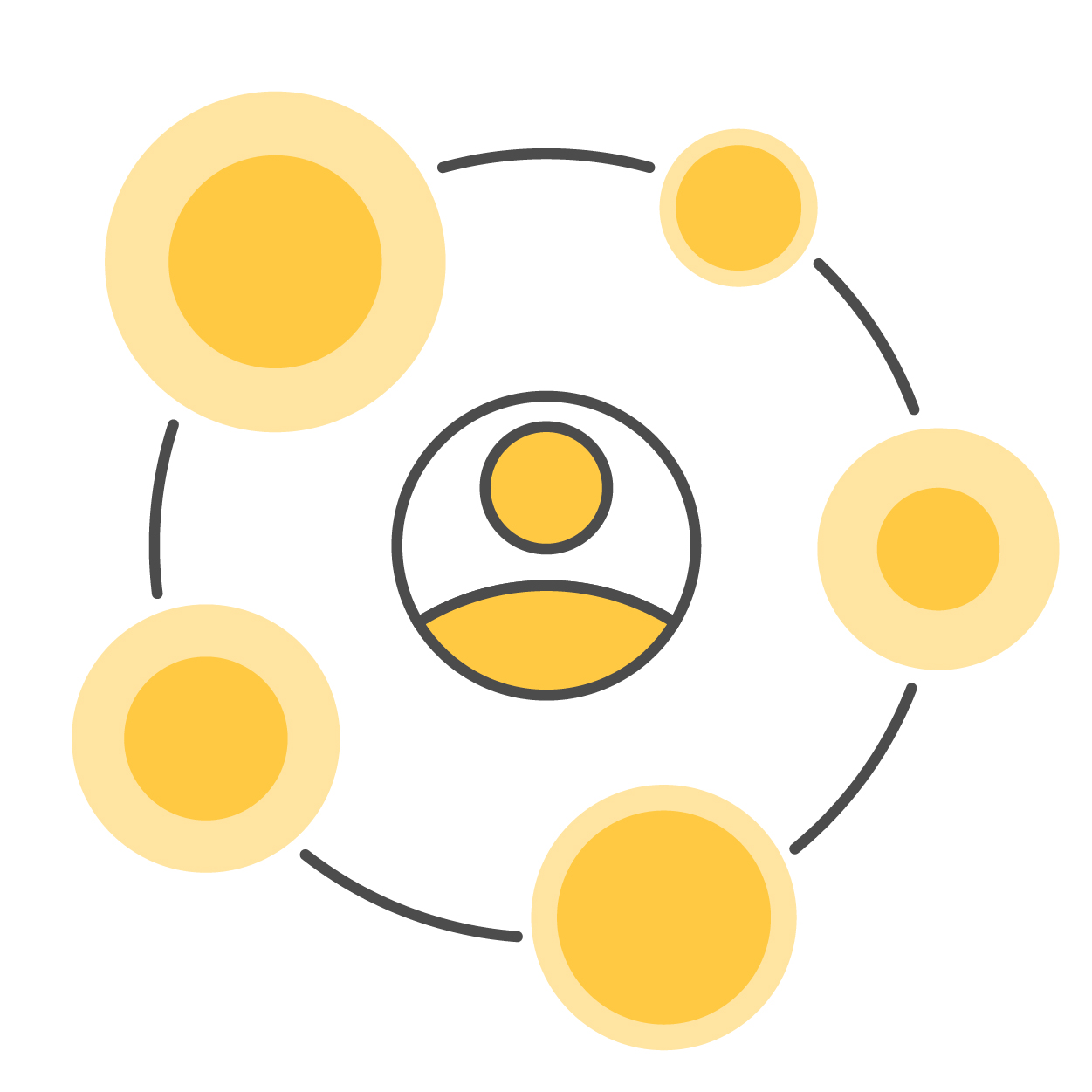Ideal You
Ideal You
Course: Fluid Assemblages
Group Work, Academic
Umeå Institute of Design
Nov - Dec, 2018 | 6 Weeks
How might we give users control on how digital services interpret their actions & show them content based on that?
Aiming at looking how complex digital systems are constantly changing in their relationships with the user, business and other stakeholders. Taking Facebook as the first platform for intervention, Ideal You aims to make visible the profiling algorithms that make decisions for users. Also, by giving control to the people, the dynamics between Facebook, users and advertisers shifts the power more to the user.
Team: Mehek Sharma
My Role: Concept Ideation, Wire Framing, Visual Design, Testing, Animation
Experience Ideal You - Concept Video
Key Features
Stakeholders and Service Blueprint
There are various human and non human stakeholders involved in the system.
The users’ intervention with Ideal You will break the current balance. With the information flows, new dynamic balance will be built and more control will be given to the users.
Process - Testing and Iterating From Day 1
Seeing how a digital platform profiling you from your browsing history can be intimate and sensitive. So we started testing and iterating on the day 1to understand how people want to be seen as from their digital services.
Exhibition - Analog Ideal You Dashboards
We put up an exhibition by the end of the project, to take people through the concept and also invite them to interact with an analog version of the Ideal You worksheet. By putting their own interests on paper and comparing the interest bubbles between each other, conversation and discussion were triggered.
The Power of Surfacing the Reasons Behind the Decisions - The Epiphany Moment
As digital products and services become smarter and smarter, they seem to make decisions and predictions for us all the time. What news we would like to read; which restaurant we would prefer; where should be our next holiday destination… As users, we tend to develop our own ways of interpreting these decisions in our own ways - Maybe the service is connected to another one; maybe it senses that my friends like this; maybe it turns on the mic and eavesdrops my conversation…
By seeing how people’s reaction by understanding the mechanism of profiling algorithms, I thinks surfacing the reasons behind the decisions made by the platform for the users can be super powerful and even the first step towards a more equal platform-user relationship.








